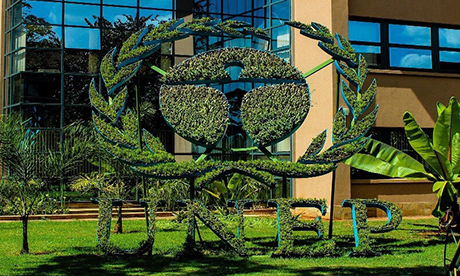Islamic leaders have unveiled ‘Al-Mizan: A Covenant for the Earth,’ a document urging action on climate change.
The document can be seen as a counterpart to Pope Francis’ groundbreaking encyclical, Laudato Si’, launched nine years ago.
Al-Mizan, announced on February 27 during the United Nations Environment Assembly (UNEA) in Nairobi, offers a Muslim perspective on addressing global ecological challenges.
Leila Benali, president of UNEA-6 and Morocco’s minister for energy transition and sustainable development, described the document as perfectly aligned with global efforts to tackle environmental crises.
“Al-Mizan … acknowledges the severity of the triple crises, including pollution, including climate change, including biodiversity loss, nature and also injustice in sharing the resources of life” said Benali.
Meaning ‘balance’ in English, Al-Mizan emphasises restoring ecological equilibrium and preserving the planet for future generations.
“Environmentalism is deeply embedded in the veins of Islam.
“It is about personal behaviour and how it manifests itself in our association with others and also about being considerate in our relationship with the natural world and other sentient beings” said a UN statement.
Al-Mizan, the announcement said, is based on Quranic principles of encouraging public good, forbidding wrong action and acting in moderation.
The UNEP’s Faith for Earth Coalition assembled Al-Mizan.
Scholars and members of leading Islamic organisations, including the Islamic World Educational, Scientific and Cultural Organization, drafted the document.
Parallels with Laudato Si’
Christian leaders have noted the parallels between Al-Mizan and Pope Francis’ Laudato Si’.
“In many ways, Al-Mizan is the Islamic equivalent to Laudato Si’, the encyclical of Pope Francis and, more recently, the Laudate Deum, a follow-up document.” Catholic Archbishop Hubertus van Megen, the apostolic nuncio in Kenya and South Sudan, said this to those gathered for the announcement.
“Al-Mizan is therefore not only about a balanced and equitable approach to nature, but its very method is also a beautiful witness to a balanced dialogue between faith and reason.
“These two do not exclude each other … but rather are complementary to each other as the document abundantly shows” added van Megen.
Sources
Additional reading
News category: World.




